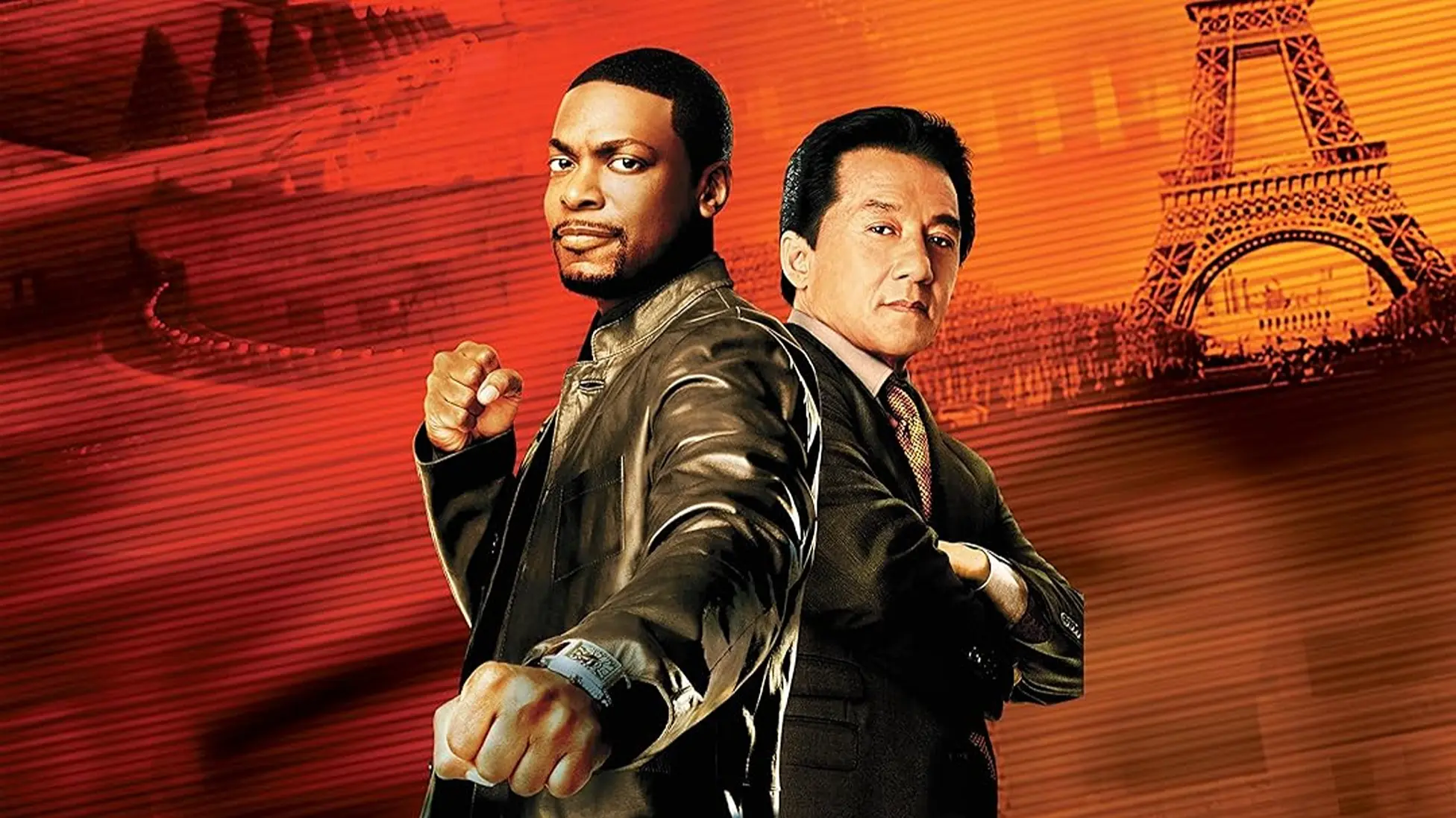Rush Hour now comes with a content warning as old-school comedy meets new-school standards
-
 RUSH HOUR (2001). Photo: ©New Line Cinema / Courtesy Prime Video
RUSH HOUR (2001). Photo: ©New Line Cinema / Courtesy Prime VideoRush Hour, the 1998 buddy-cop hit starring Jackie Chan and Chris Tucker, now plays on USA Network and Prime Video with a brief disclaimer that flashes before the opening credits.
The warning first aired on USA Network’s 8 p.m. slot on July 4, and a screenshot from Prime Video went viral two days later, sparking debate about how older comedies fit modern viewing standards.
Rush Hour's original release on September 18 1998, brought in more than $244 million worldwide and launched two sequels, but its mix of racial stereotypes, casual slurs and culture-clash jokes now triggers caution labels designed to prepare newer audiences.
Why Rush Hour now carries a pre-screen warning
Networks adopted the label after viewers flagged scenes that lean on Asian-accent mockery, repeated use of the N-word and fat-shaming quips, material commonplace in late-1990s studio comedies but increasingly out of step with today’s inclusion guidelines. The brief disclaimer that flashes before the opening credits reads:
"We all love our buddy comedies … but this movie was created in a different time. FYI certain depictions, language and humor may seem outdated and at times offensive"
The advisory mirrors similar messages added recently to Goodfellas, Blazing Saddles and Gone With the Wind, part of an industry move toward context, not censorship.
Audience reaction is split. Some social media users praised the heads-up for parents and younger viewers, while others called it unnecessary hand-holding. One commenter complained that studios were tarnishing the artistry by scolding viewers before the first joke even lands.
What today’s standards flag in the film’s humor
Specific lines in Rush Hour, now singled out, include Carter’s nightclub riff that drops a racial slur, multiple jokes built on confusing Chinese and Japanese culture, and a running gag about Latino gang members’ accents.
Diversity consultants hired by broadcasters note that each moment trades on laughing at, not with, the target group, precisely the type of material current guidelines ask streamers to identify for viewers.
The wider conversation is hardly new. Director Quentin Tarantino, asked in 2023 about trigger warnings, gave some opinions. As per the NME report dated June 29 2023, he stated in a La Liberation interview dated June 16, 2023, arguing that context should be left to the audience:
"I reject the word ‘offended’. Anyone can be offended by anything. Frankly, I think most of the time – and there are no doubt some exceptions – saying that you are ‘offended’ by a film is the first response of a very narrow mind. ‘I didn’t like it, and here’s why, blah blah blah…"
As per Vanity Fair report dated May 16 2024, stage legend Dame Judi Dench offered a parallel theatre-world view last year:
“If you’re that sensitive, don’t go to the theater… Where is the surprise of seeing and understanding it in your own way?”
Whether one agrees with Dench or not, the modern broadcast standard aims to warn without cutting content, a compromise between preserving the film intact and acknowledging that some viewers now arrive with different expectations about representation.
What the filmmakers and stars say about Rush Hour’s legacy
Jackie Chan has long had mixed feelings about the franchise’s humor. As per the Crosswalk interview dated October 9, 2002, he admitted, reflecting on audience taste versus his own:
“I make the movie and I tell my manager, 'See I should never make this kind of movie!' Then I go to Asia to make Asian film and they call me and say, 'Jackie, big hit! It success!' I say what? Then I make Rush Hour 2 and I hate it! Worse than Rush Hour 1! And they call me and say, 'It success!”
Director Brett Ratner has not issued a new statement, but in earlier interviews, he defended testing jokes with live audiences and trimming anything that failed to land, a practice that, in 1998, was rarely considered a long-term cultural shift.
For broadcasters, the label is a practical middle ground: keep Rush Hour uncut for movie-night nostalgia while signaling that its quick-fire banter emerged from a different era.
Whether viewers find the notice helpful or patronizing, its sudden appearance underscores how fast comedy’s goalposts move, and how every successful film, sooner or later, must negotiate the standards of the next generation.
Stay tuned to Primetimer for more updates.
TOPICS: Rush Hour, Prime Video